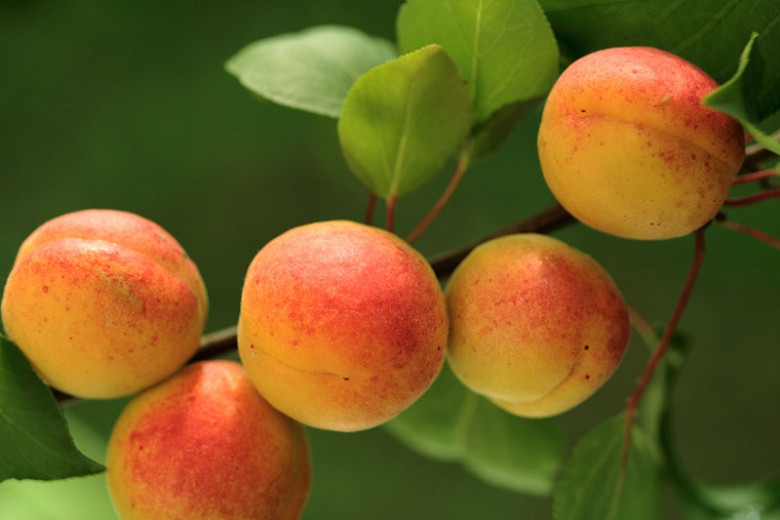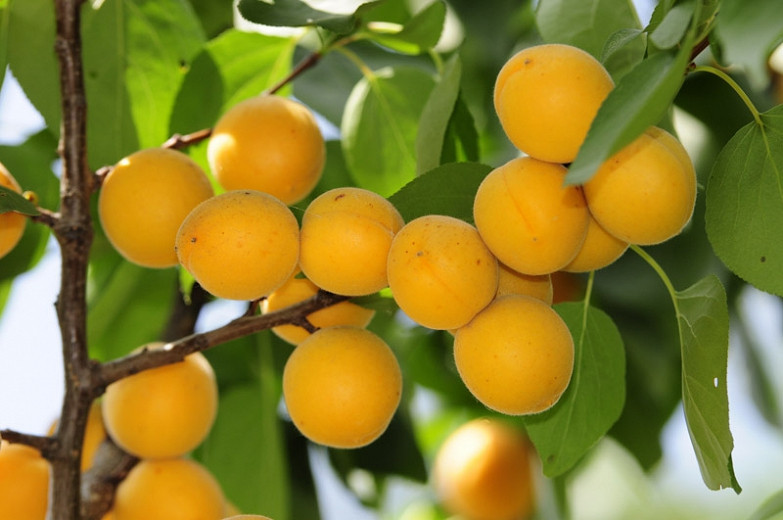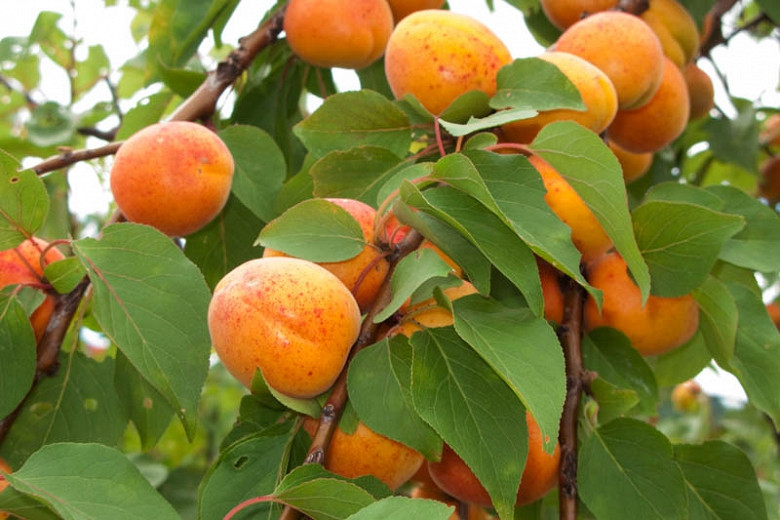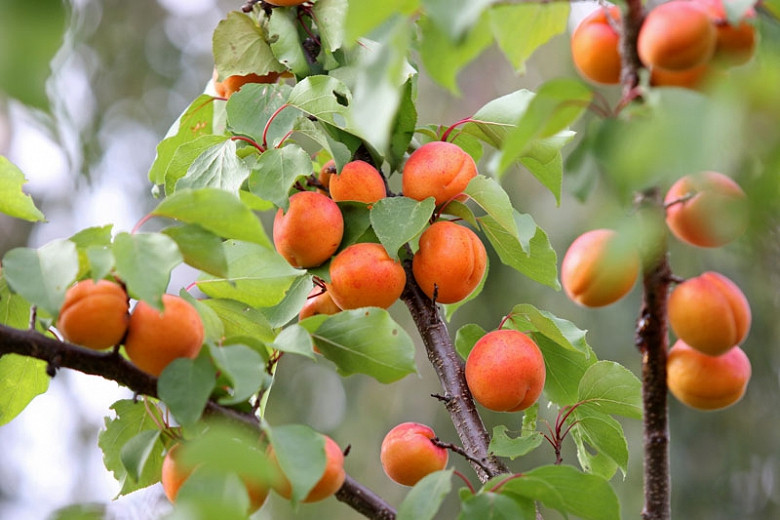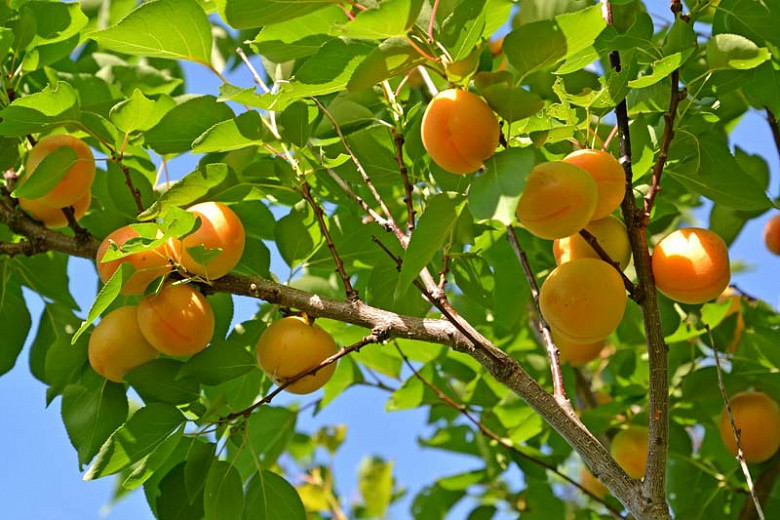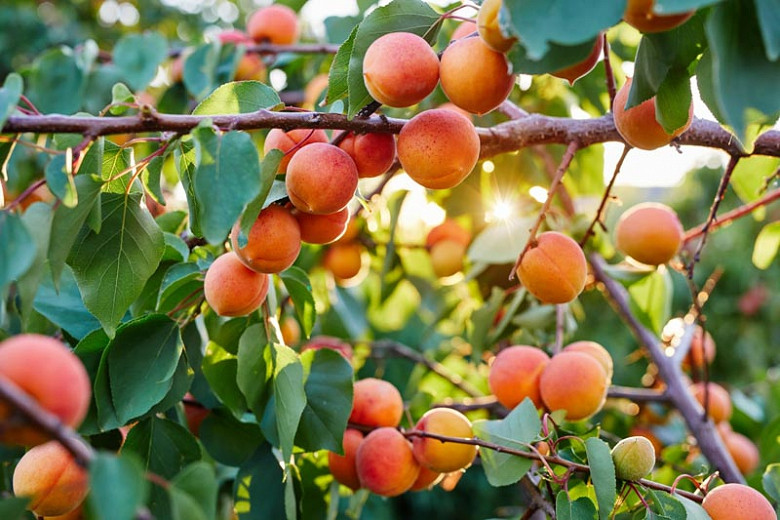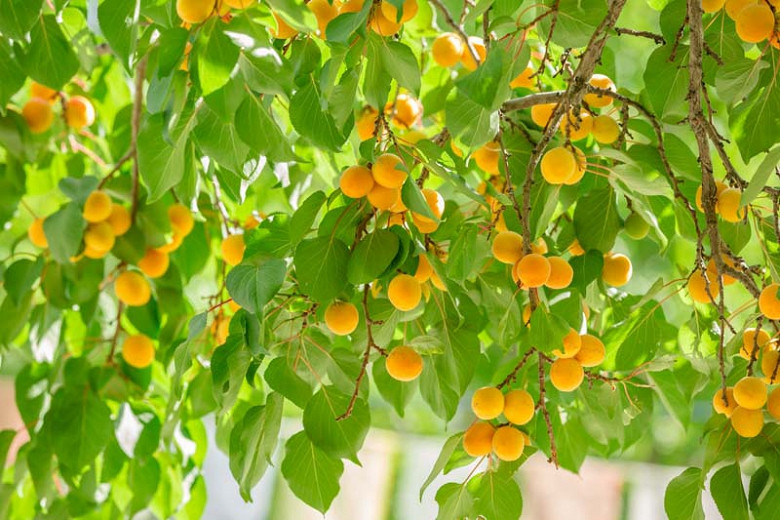Prunus armeniaca Tilton (Apricot)
A long-time favorite, Prunus armeniaca ‘Tilton’ is a small to medium-sized apricot tree adorned with profuse clusters of pink five-petaled flowers in mid-spring. They are followed by somewhat heart-shaped, medium-sized, freestone, orange fruits with a red blush in mid-summer.
A long-time favorite, Prunus armeniaca 'Tilton' is a small to medium-sized apricot tree adorned with profuse clusters of pink five-petaled flowers in mid-spring. They are followed by somewhat heart-shaped, medium-sized, freestone, orange fruits with a red blush in mid-summer. The flesh is firm, and aromatic, with a good sweet flavor. They are perfect for eating, baking, canning, or drying. Self-pollinating, this apricot tree forms a rounded crown with upwardly-reaching branches clothed in ovate, finely serrated, dark green leaves with a pointed tip.
- Typically reaches 15-25 ft. tall and wide (450-750 cm). Plant at least 8-10 ft. (240-300 cm) away from patios, water pipes, and sewer pipes.
- Performs best in full sun in deep, fertile, moist, well-drained soils.
- Apricot trees are fairly precocious, and begin fruiting in their second year, but substantial harvest does not begin until 3-5 years.
- This apricot tree has a chill hours requirement of 600 (hours of temperatures below 45ºF (7ºC) in the winter for their buds to open in the spring).
- This variety is self-pollinating. You may still want to plant pollinating partners to increase the size of your crops.
- Frost sensitive, Apricot trees are perfect for Mediterranean climates.
- Apricot trees require regular pruning to remain strong, and healthy and produce bountiful harvests.
- Keep an eye out for aphids, squirrels, borers, Japanese beetle, leaf roller, mites, bacterial canker, bacterial leaf spot, brown rot, Oriental fruit moth, and powdery mildew.
- Apricots are propagated by cuttings, grafting onto rootstocks for fruit, or can be propagated by seed, although the fruit from the seedlings is likely to be inferior in flavor to the parent.
- Toxic to dogs, toxic to cats, toxic to horses.
Requirements
| Hardiness | 5 – 9 |
|---|---|
| Heat Zones | 2 – 8 |
| Plant Type | Fruit, Trees |
| Plant Family | Prunus – Fruit Trees, Apricots |
| Exposure | Full Sun |
| Season of Interest | Spring (Mid)Summer (Mid) |
| Height | 15' – 25' (4.5m – 7.5m) |
| Spread | 15' – 25' (4.5m – 7.5m) |
| Water Needs | Average |
| Maintenance | High |
| Soil Type | Chalk, Loam, Sand |
| Soil pH | Acid, Alkaline, Neutral |
| Soil Drainage | Moist but Well-Drained |
| Characteristics | Showy, Fruit & Berries |
| Attracts | Birds |
